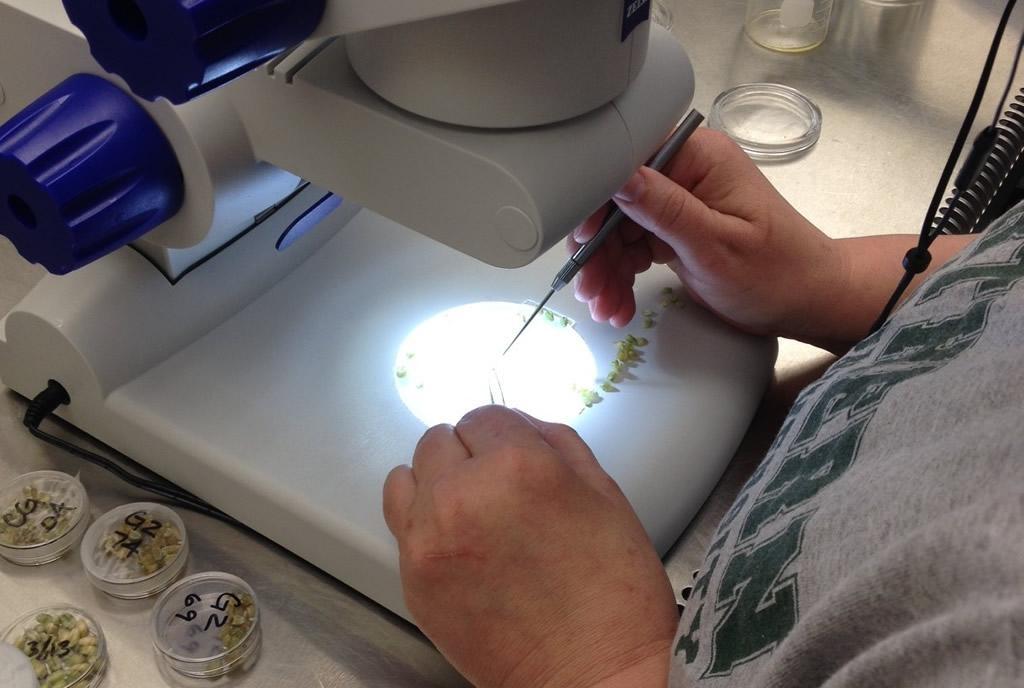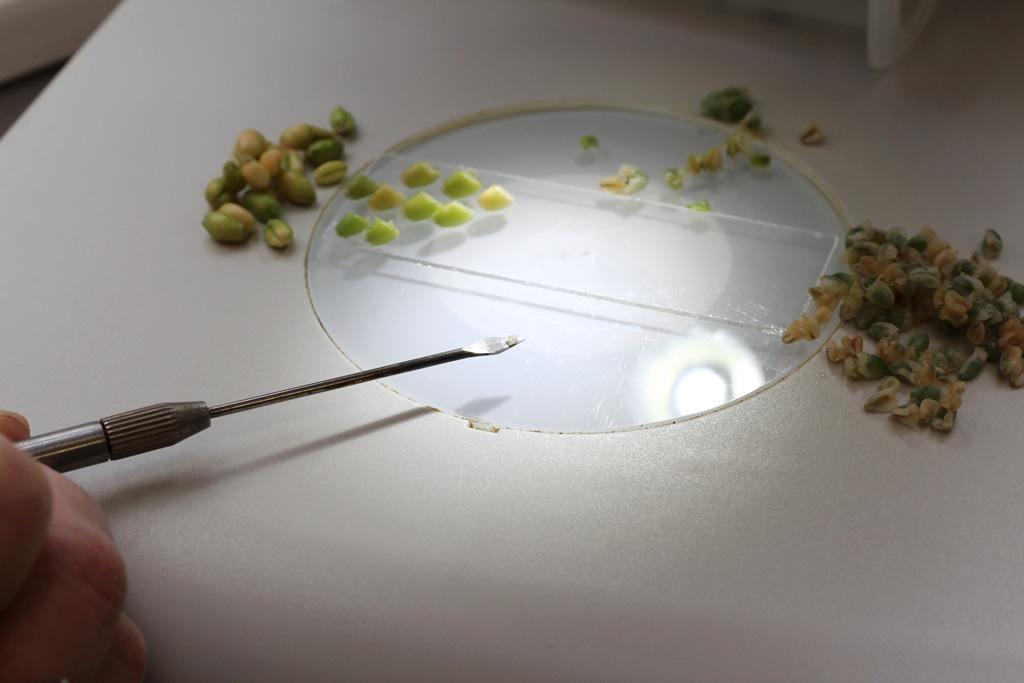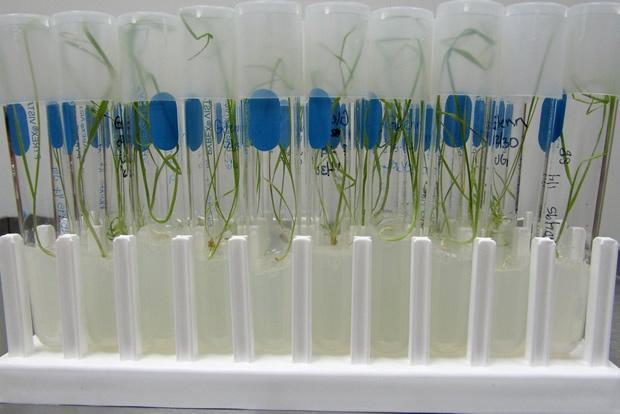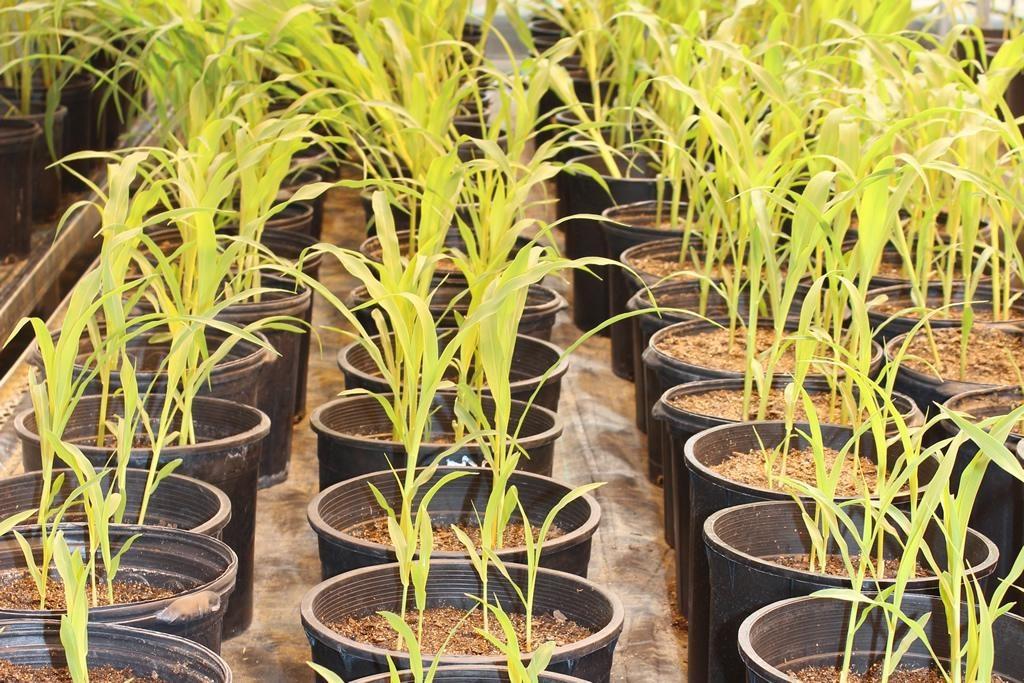Heartland Plant Innovations’ Advanced Plant Breeding Services
Doubled Haploid Technology
For thousands of years, farmers, breeders, and geneticists have worked to improve crop varieties, slowly breeding new traits over many generations. Today, advanced plant breeding technologies enable far more significant improvements in far less time. Among the most promising technologies is the production of doubled haploids – genetically pure plant lines that offer a quick route to new gene combinations for higher yield, improved quality, disease resistance, or other crop improvements.
The doubled haploid (DH) process rapidly yields true-breeding lines that can reliably be tested and selected for specific, desirable improvements. Conventional plant breeding techniques achieve the same objective but over a much longer time. For winter wheat, the doubled haploid process delivers true breeding wheat lines in just one year, as compared to about six years for conventional methods. The time required for delivering a new winter wheat variety could thus be cut in half, requiring only five or six years as compared to 11 or 12. For spring wheat, DH lines can be achieved in 9-10 months.
Heartland Plant Innovations (HPI) serves customers in public and private breeding organizations in the United States and worldwide to apply the doubled haploid process and produce new varieties that exhibit specific, desirable traits.
Our Process
HPI produces doubled haploid lines via the pollination method. We have the capability to start an order any day of the year. The process begins with seeds provided by the customer (typically F1). We can generally produce 10-20 doubled haploids per seed: if 5-10 seeds are provided per cross, we can produce 50-100 doubled haploid lines. For each doubled haploid line, we deliver an average of 15 seeds, though we often times produce 20 or more seeds per line.
The HPI doubled haploid production process takes approximately one year and costs between $40 and $55 per delivered line, depending on the details of the order. Ask us about our “large pot option.”
Get Started
- To learn more about the doubled haploid process, view our video.
- To place an order for doubled haploid lines, email Mohammad Asif or call (785) 320-4301.
Trait Development
HPI is committed to developing and applying cutting-edge technology to the design of enhanced value traits in wheat, sorghum, and other crops. We strive to translate knowledge of genome structure and function into new, outwardly observable and usable plant properties.
Our trait development program uses advanced genetic tools. This includes doubled haploid technology, mutant population development, marker-assisted breeding (MAB), and preparing high throughput libraries for sequencing.
Examples of our capabilities include:
Wheat Trait Development
Wheat generally faces a 30 percent yield loss due to abiotic and biotic stresses. HPI will work to improve wheat yields by identifying and developing beneficial traits via the following research initiatives:
- Establishing detailed phenotypic characterization of wheat lines.
- Sequencing of the wheat genome.
- Developing single nucleotide polymorphism (SNP) marker resources.
- Identifying SNP markers associated with the most useful wheat breading traits.
- Reducing the effects of heat stress on grain fill in wheat.
- Improving the performance of wheat in milling and food preparation.
- Silencing genes to enable resistance to viruses such as Wheat Streak Mosaic Virus and Triticum Mosaic Virus.
- Evaluating the cancer-prevention roles of wheat lignin in animals.
Sorghum Trait Development
A well-established tolerance to environmental stresses has allowed sorghum to flourish as a source of grain and feed for livestock as well as a promising crop for human food and bioenergy. However, sorghum plantings are limited by a number of critical factors. HPI will work to address these limitations through the following research objectives:
- Phenotyping and marker discovery for biomass
- Improved gene transfer process
- Drought tolerance
- Cold and early planting tolerance
- Grain quality
- Doubled haploid production
Sequencing
DNA or next generation sequencing equipment requires a large capital investment to establish a molecular laboratory. Small plant breeding programs or laboratories with special sequencing needs can rely on HPI’s expertise and timely execution. We provide standard and custom based solutions for extraction, library preparation, sequencing, and bioinformatics.






